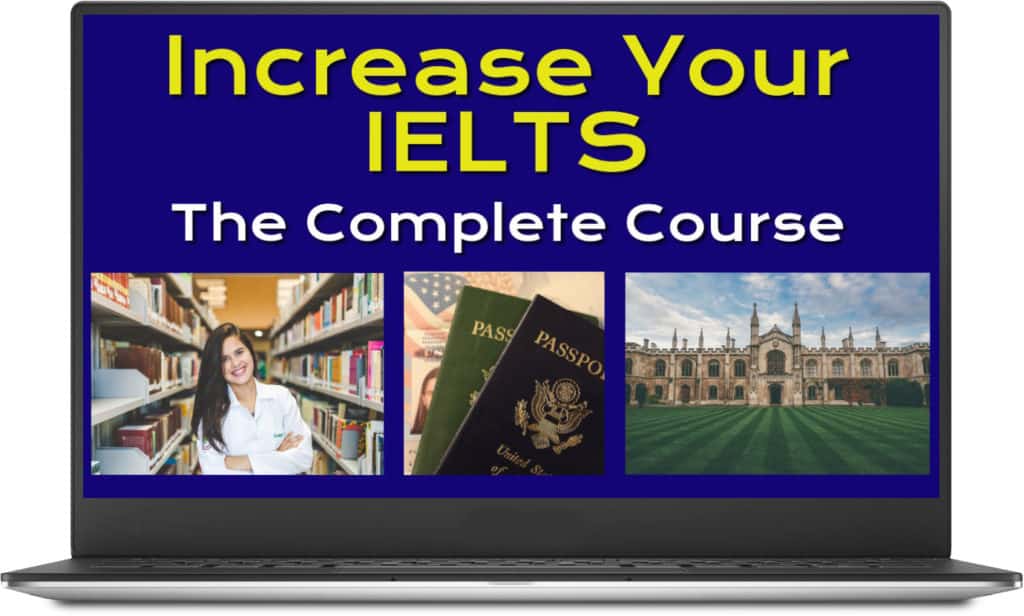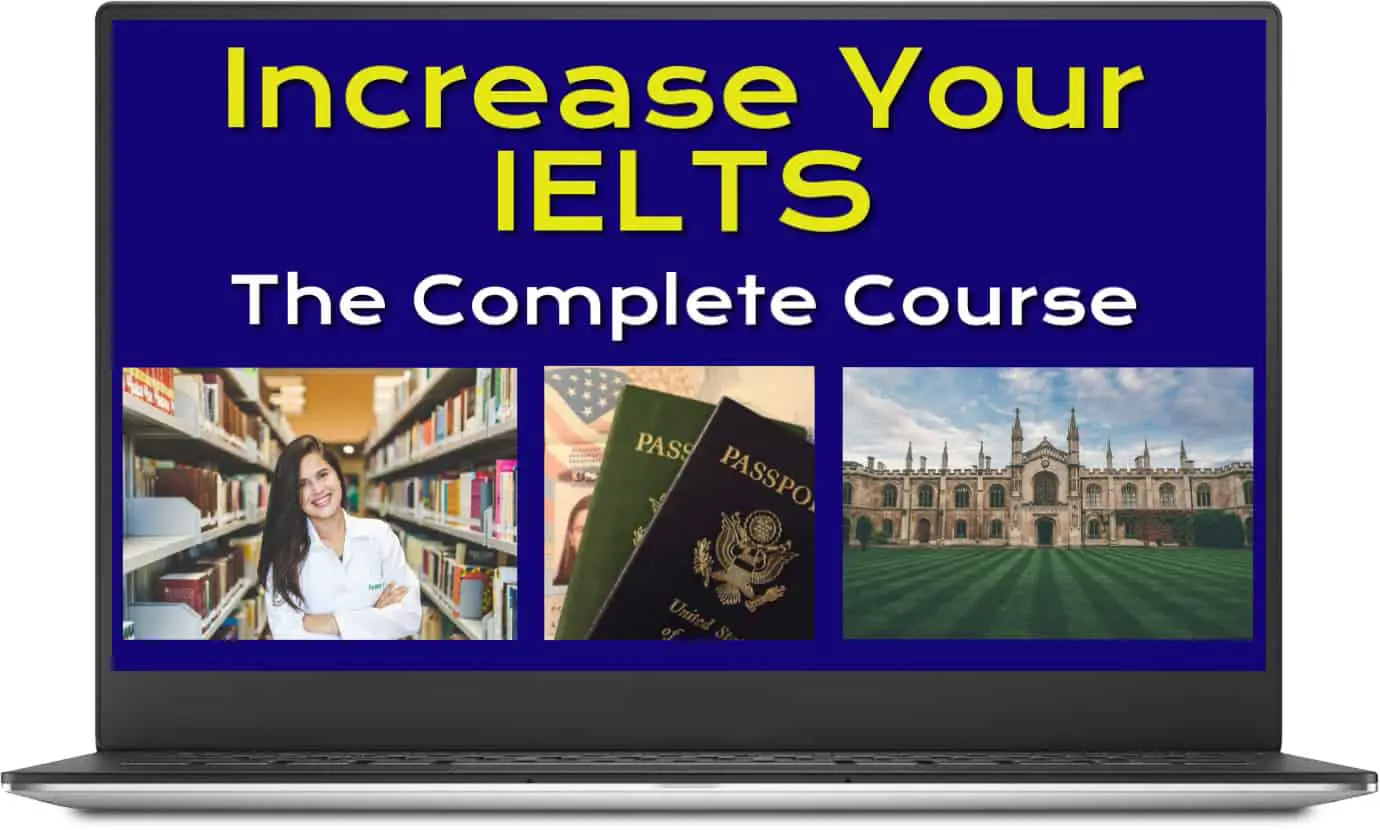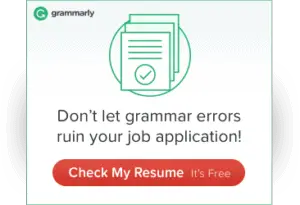Introducing yourself in the IELTS speaking test
Before the examiner says anything to you at all they will say this opening paragraph for the benefit of the recording:
‘This is the International English Language Testing System on the 20 March 2020. The Candidate name is… The candidate number is… The centre is… and the centre number is… The examiner is… and the examiner number is…
After this they will then ask you the following IELTS speaking introduction questions:
- Can you tell me your full name please?
- Thank you, and what shall I call you?
- And can you tell me where you’re from?
- Can I see your identification please?
As you can see, you are not actually asked to introduce yourself for IELTS speaking because it will always follow the same procedure shown above.
Let’s look at how you would answer those introductory style questions now. Don’t forget I’m writing this as a former IELTS examiner and I’ve been through this like ‘gazillions’ (a lot) of times!
To Improve Faster Check Out My Full IELTS Course Here

IELTS Speaking Introduction Question and Answers (sample)
Examiner: Can you tell me your full name please?
Candidate: Sure, my name’s Mark Ayudyha
Examiner: Thank you. And what shall I call you?
Candidate: Mark is fine.
Examiner: And can you tell me where you’re from?
Candidate: I’m from Belarus.
Examiner: Can I see your identification please?
Candidate: Sure, here you are.
Examiner: Thank you, that’s fine. Now, in this first part I’d like to ask you some questions about yourself. Let’s talk about ……
END

A couple of important points to note here. The candidate has responded correctly in this example, they were not too formal or informal and the examiner will note this.
They will also get a first sense of how good your English is and one of the first things they will notice is whether you speak in ‘chunk’s or not, i.e. do you link the sound of words together.
Sound linking is a very important part of sounding natural and if you do it, when you introduce yourself in English, you will sound very natural to the person listening.
The rule is that if a word ends with a consonant sound and the next word starts with a vowel sound then the words should all link together naturally as you say them.
So, from the above IELTS introduction questions and answers the sounds would link like this:
Examiner: Can you tell me your full name please?
Candidate: Sure, my name’s MarkAyudyha
Examiner: Thank you. And what shall I call you?
Candidate: Markis fine.
Examiner: And can you tell me where you’re from?
Candidate: I’m fromAngola.
Examiner: Can I see your identification please?
Candidate: Sure. Hereyou are.
You might notice that although the word ‘you’ starts with a consonant letter the actual sound of the word is a ‘u’ sound, and so the word preceding ‘you’ will always be merged with it if it ends in a consonant.
To Improve Faster Check Out My Full IELTS Course Here
What Happens After The IELTS Speaking Introduction?
The examiner will then ask you three short questions on three different topics. The topics are all about familiar topics, such as likes and dislikes, hobbies and daily routines.
The examiner actually has to randomly select each batch of three from a list of about 40 different topics listed inside the booklet in front of them. These topics will stay the same for a few months before IELTS change them.
This means that some questions that people report on the internet for IELTS speaking part 1 will be repeated in some people’s future tests. However, it is still extremely unlikely that you will get a question that you have rehearsed for.
Here is an example of the type of questions you are likely to get straight after the introduction routine:
Let’s talk about where you live.
- What do you like most about your hometown/city? (Why?)
- Is your hometown/city a popular place for tourists to visit? (Why?)
- Do you think your hometown/city has changed much in recent years? (Why?)
Let’s move on to talk about fashion:
- Do you care about fashion? (Why?)
- What kind of things do you normally wear? (Why?)
- Are there any traditional clothes in your country? (Why?)
- Where do you usually purchase your clothes? (Why?)
Let’s move on to talk about reading:
- How often do you read? (Why?)
- What do you read? (Why?)
- How important is reading to you? (Why?)
The first part of the test will end when the examiner has either asked you questions about three different topics or when they have questioned you for between 4-5 minutes.
Notice, however, that for each question you should expand on your answer otherwise the examiner will simply ask you ‘why?’ until you give them something else.
How Do You Introduce Yourself In A Speaking Test?
As you have just read, you do not have to formally introduce yourself in the IELTS test by giving a short speech, but, I will give you an example of how I would introduce myself in a speaking test environment just in case you ever have to do this.
“Hi, my name’s Tim James and I’m from Manchester. I work for a small private school teaching international students and I’ve been teaching for over ten years now.
In my free time I enjoy playing rugby, hiking and spending time with my children. I’m from a small family and have two elder sisters.”
As you can see, I simply gave 5 pieces of information: my name, where I’m from, what my job is and how long I have been doing it, my hobbies and a bit of family background information.
The style of language is neutral, neither formal or informal, and the information I have given is not too specific but not too general either. I have given just enough information for someone to start to get an idea about me but I have not given lots of specific information. We tend not to do this because it is just a little strange to give someone you have just met your full life story!
That’s pretty much all you need to do to introduce yourself in English in a speaking test or in general life for that matter. It might differ a little bit depending on if you were in a work environment or if you were meeting new people in a social setting, you might alter the level of formality for those situations but not a great deal to be honest.
To Improve Faster Check Out My Full IELTS Course Here
What Not To Do When Introducing Yourself In IELTS
Here are a few pointers of what not to do during the IELTS introduction part 1 of the speaking test.
- When the examiner asks you your name, just answer with your name. Don’t try and be clever and start explaining the meaning of your name. Students have sometimes been coached to expand on all their answers which is good but not necessary in the introduction phase of the IELTS exam.
- Don’t be overly friendly or informal. Phrases such as ‘g’day mate’, ‘Hey-up fella,’, ‘How’s it going dude’, are not appropriate for this setting.
- Don’t deliberately try to insert words and phrases that you have been coached on. Sometimes I hear a student say ‘I currently reside in…’. The word ‘reside’ is correct but it is just not the correct level of formality, just say ‘live’.
Finally, Shape Up For Your IELTS Speaking Introduction

First impressions are important. Whilst the examiner is trained to assess your language skills only, they are only human and it does not hurt to try and make a good first impression. Part of this is just displaying good body language as you answer the introduction questions.
So, with that in mind, sit slightly forward in your chair, do not slouch, keep your head up rather than staring down at the table, make eye contact with the examiner and probably the most important point of all is to smile.
Smiling gives the examiner the impression that you are feeling confident and relaxed as you would expect from someone who is a good speaker of English which is of course what you want them to believe.
I hope you now go out there and smash this IELTS test and get the band score you deserve. Also check out our full IELTS speaking guide here or my full course here.
Recommended IELTS Study Tools
Thank you for reading this article. I always get lots of questions about how else to get a better band score quickly. So, this is what I recommend:
Complete IELTS Course: Of course, my full course ‘INCREASE YOUR IELTS‘ covers everything you need to need to know to pass IELTS, including practice questions, model answers, grammar work, strategies for every possible reading, writing and listening question type, as well as a complete speaking course too, check it out here.
IELTS Essay and Speaking Feedback: To complete full mock tests and get feedback from IELTS examiners on your IELTS essays or speaking tasks then visit: IELTS Feedback and Mock Tests, here.
Improve your grammar fast by using the Grammarly suggestions to improve your writing. Every IELTS students should have this free grammar improving tool.
Improve all-round English skill with EnglishClass101.com. If you have failed IELTS more than once then you probably need to improve your general level of English. Use the free online lessons and vocabulary building tools here and start improving today! HIGHLY RECOMMENDED!





